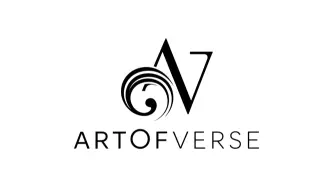Choosing the correct dentistry course can be rather important for both practicing and aspirational dental professionals trying to improve their competency. With so many choices—from basic courses to specialized training—finding the path that fits your professional ambitions calls for considerable thought. Many choose courses like crest ce courses because they present worthwhile learning chances. Examining several elements can help you to make sure your educational expenditure pays off most of all.
Knowing Your Personal Employment Objectives
You have to be quite definite about your professional goals before starting a dentistry degree. Finding your interests will assist you to focus on orthodontics, periodontics, or cosmetic dentistry and help you to reduce your options. Think about your degree of knowledge right now and the areas you want to get better in. While advanced programs might help hone particular abilities needed for specialized activities, courses meant for beginners may concentrate on developing basic information.
Credibility and accreditation
The accreditation and reputation of a dental course is among the most crucial things one should take into account while selecting one. Professional groups identify accredited programs, which guarantee that the curriculum satisfies industry requirements. This not only ensures the caliber of instruction but also improves your credentials in the perspective of companies and patients. Before deciding, find out the course provider’s standing and confirm their qualifications.
Delivery Mode: Online or In-Person
Naturally, another important issue is the mode of course delivery. For time-pressed workers, many dental courses are now offered online and provide flexibility. Leading companies’ online programs let participants balance job responsibilities and learn at their own speed. Conversely, in-person courses may incorporate practical experience and hands-on training, which can be quite helpful for honing clinical procedures. To find the ideal structure for you, evaluate your learning style and calendar.
Course materials and curriculum
A dentistry course’s material and schedule should complement your learning goals. Go over the syllabus to be sure it provides thorough instruction and addresses pertinent subjects. Case studies, theoretical understanding, and practical applications must to all be part of a well-ordered course. A course in implantology might, for instance, cover surgical methods, patient assessment, and post-operative care. Examining the curriculum helps you determine whether the course will offer the skills and knowledge you are looking for.
Money’s Cost and Value
Choosing to invest in a dental school is a big one, thus one should weigh the expenses. Although certain programs could seem costly, their worth usually rests in the quality of the education and chances they provide. Examine the costs of several courses and balance them against the possible advantages—better skills, higher earning potential, and career progress.
Networking Possibilities
Many times, dental courses provide a forum for industry professionals to network with one another. Engaging peers, mentors, and business leaders will create doors to fresh prospects and team projects. Classes with group projects, seminars, or interactive sessions create a setting where students may exchange ideas and knowledge. Apart from enhancing your educational process, networking fosters important ties that could assist in the development of your profession.
Achieving professional success and personal development in dentistry depends critically on selecting the correct dental course. Initiatives like crest ce courses stress the need of easily available, top-notch education for dental practitioners. Careful preparation and thought will help you choose a path that improves your knowledge, sharpens your abilities, and opens the road for a happy career in dentistry.

